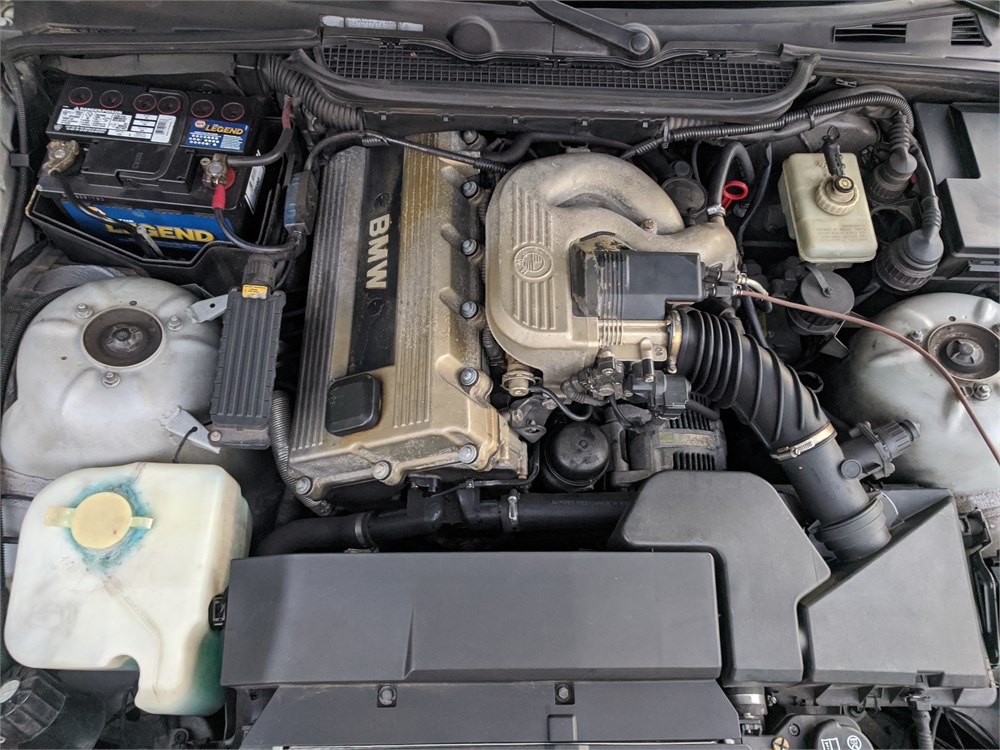Essential Considerations for Selecting the very best Engine for Your Demands
In the realm of choosing the perfect engine to meet your demands, numerous crucial aspects need meticulous consideration to make sure optimal performance and performance. From the nuanced equilibrium in between power and performance to the often-overlooked aspects of upkeep and solution requirements, each facet plays a critical duty in identifying one of the most ideal engine for your certain demands. As the intricacy of engine innovations continues to advance, discerning one of the most suitable option requires a deep understanding of the interaction in between various factors to consider. By exploring the elaborate internet of elements that underpin this decision-making procedure, a more clear course emerges towards picking an engine that not just meets but exceeds your expectations.
Power and Efficiency
When reviewing engines for ideal performance, it is crucial to focus on both power outcome and performance. Power result gauges the capability of an engine to create power, which directly influences its efficiency. A high power output is vital for demanding tasks such as high-speed demands or durable applications. It ensures that the engine can handle the work efficiently and successfully. However, power alone is not enough; effectiveness plays a considerable role in determining the general efficiency of an engine. Efficiency describes exactly how well the engine converts gas right into functional energy. A more efficient engine will certainly supply much better mileage, lower discharges, and decreased operating expenses. Striking the appropriate equilibrium between power outcome and efficiency is essential to choosing an engine that satisfies your certain needs. It is necessary to take into consideration factors such as the intended use of the engine, environmental influence, and long-lasting expense implications when making this decision. By meticulously assessing both power and performance, you can select an engine that provides optimum performance and fulfills your demands effectively.
Gas Effectiveness and Economic Climate
Gas effectiveness refers to the engine's capability to transform fuel right into energy with minimal waste, directly impacting operating costs and ecological sustainability. Engines with greater gas efficiency not only minimize gas costs however also lower carbon discharges, contributing to a greener procedure.

Compatibility and Application
Considering the gas performance and economic situation of an engine, the next critical aspect to address is its compatibility and application within specific operational contexts. Compatibility refers to how well the engine integrates with the overall system or devices it powers.
In addition, the application of the engine is similarly important. Different engines are designed for specific purposes, like it whether it be commercial machinery, aquatic vessels, vehicles, or power generators. Recognizing the designated application enables for the selection of an engine that can deliver the required power outcome, torque, and functional characteristics. For circumstances, a high-revving engine my link made for performance cars and trucks would certainly not appropriate for heavy-duty construction equipment that requires high torque at reduced speeds.
Maintenance and Solution Requirements
Maintenance and solution needs play a vital role in guaranteeing the long life and optimal performance of an engine. Routine upkeep is important to stop failures, extend the life expectancy of the engine, and keep its efficiency. When selecting an engine, it is vital to consider the producer's recommended maintenance routine and the availability of service centers or qualified service technicians.
Variables such as the regularity of oil changes, filter replacements, and overall evaluations can substantially influence the engine's efficiency. Some engines might call for even more regular maintenance based upon their style and usage, while others may have longer periods between maintenance checks. It is vital to comply with these solution demands to prevent pricey fixings and unanticipated downtime.

Expense and Budget Considerations
When selecting an engine for a specific application,Budget restraints commonly play a considerable duty in the decision-making process. When considering the expense and Discover More budget effects of choosing an engine, it is vital to evaluate not just the initial acquisition rate however additionally the long-lasting expenditures connected with maintenance, gas intake, and prospective upgrades or repair services. It is essential to strike a balance in between the in advance expense of the engine and its general lifecycle costs to ensure that the picked engine stays financially lasting throughout its operational life expectancy.
Aspects such as gas integrity, effectiveness, and durability can straight impact the total cost of ownership of an engine. While a much more expensive engine may have higher in advance expenses, it might possibly cause lower maintenance and fuel expenses over time, thus providing much better value over time. Furthermore, thinking about the schedule and expense of extra parts, as well as the ease of upkeep and solution, can help avoid unexpected financial strain in the future. By very carefully reviewing these price and spending plan considerations, you can make an educated decision that aligns with your financial restraints and functional needs.
Verdict

Fuel performance refers to the engine's capability to transform fuel into power with marginal waste, directly affecting operating prices and environmental sustainability.Elements affecting fuel effectiveness consist of engine design, burning performance, and overall performance optimization. Furthermore, choosing the appropriate fuel type and quality as advised by the engine manufacturer can even more improve performance and lengthen engine lifespan.
Engines with good service functions and conveniently offered components can reduce upkeep prices and minimize the time the engine is out of operation - bmw 318ti. It is vital to strike a balance between the upfront cost of the engine and its overall lifecycle expenses to guarantee that the selected engine stays economically sustainable throughout its functional life-span